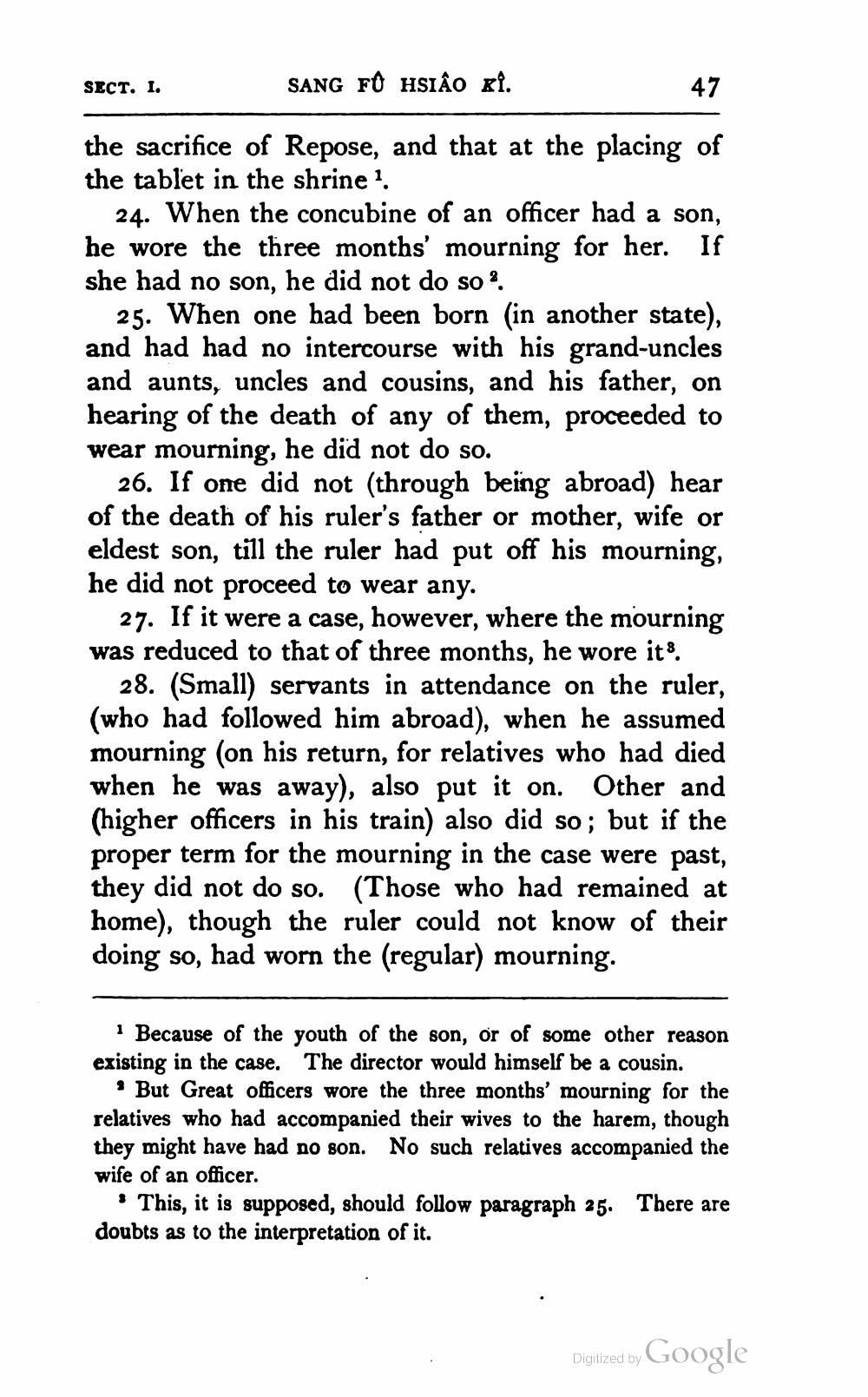________________
SANG FU HSIAO KI.
the sacrifice of Repose, and that at the placing of the tablet in the shrine 1.
SECT. I.
47
24. When the concubine of an officer had a son, he wore the three months' mourning for her. If she had no son, he did not do so?.
25. When one had been born (in another state), and had had no intercourse with his grand-uncles and aunts, uncles and cousins, and his father, on hearing of the death of any of them, proceeded to wear mourning, he did not do so.
26. If one did not (through being abroad) hear of the death of his ruler's father or mother, wife or eldest son, till the ruler had put off his mourning, he did not proceed to wear any.
27. If it were a case, however, where the mourning was reduced to that of three months, he wore it3.
28. (Small) servants in attendance on the ruler, (who had followed him abroad), when he assumed mourning (on his return, for relatives who had died when he was away), also put it on. Other and (higher officers in his train) also did so; but if the proper term for the mourning in the case were past, they did not do so. (Those who had remained at home), though the ruler could not know of their doing so, had worn the (regular) mourning.
1 Because of the youth of the son, or of some other reason existing in the case. The director would himself be a cousin.
But Great officers wore the three months' mourning for the relatives who had accompanied their wives to the harem, though they might have had no son. No such relatives accompanied the
wife of an officer.
This, it is supposed, should follow paragraph 25. There are doubts as to the interpretation of it.
Digitized by
Google




